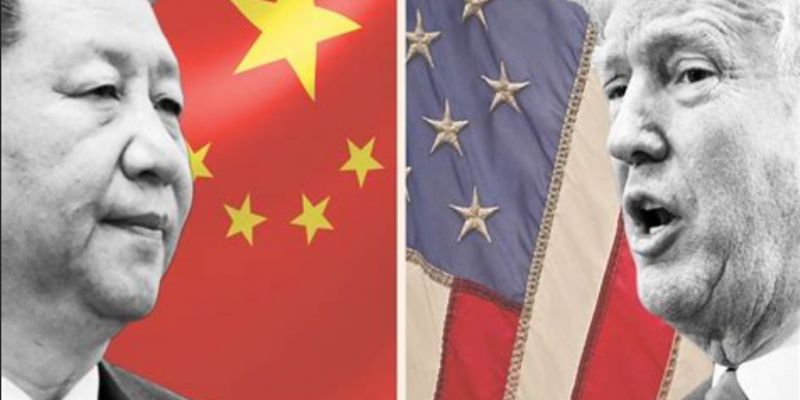Wall Street rallied after President Donald Trump and President Xi Jinping agreed to halt additional tariffs and mutually agreed not to impose tariffs against each other’s commodities. But uncertainty remains over what happens next, and when.
“We’re re-engaged,” White House trade adviser Peter Navarro told CNBC. “We’re talking on the phone already. There will probably be visits. It’s all good. From an investor’s point of view, here is all you have to know: Talks are back on track with the work that has been done to date.”
According to Chicago’s Zacks Investment Research Group, the truce “has alleviated risks in the equity market for now. A full-blown trade war would have had rippling effects on the global economy growth, casting a pall over businesses.”
The Dow Jones Industrial Average posted it highest gain since 1938 after the news, with industrial and technology stocks posting the highest gains.
The stock market also didn’t plummet after the administration proposed an additional $4 billion worth of tariffs on European imports over a dispute related to subsidies for aircraft manufacturers.
But the stock market rallying every time trade talks are announced isn’t necessarily a good thing, John Crudele at The New York Post warned, because rallies lead to asset inflation.
“The richer people feel, the more they will spend,” he wrote. “And the more they spend, the higher prices will eventually go. That will cause inflation in goods and services, especially if the assets are in an unsustainable bubble.”
The existing tariffs on hundreds of billions of dollars worth of Chinese goods are still in place.
In what first appeared to be a major concession for which the president was criticized, U.S. tech companies are now allowed to sell chips to China’s telecom giant, Huawei. The company was blacklisted by the U.S. Commerce Department for allegedly committing espionage.
The chip sales “are lower tech items which do not impact national security whatsoever,” Navarro told reporters.
Huawei remains prohibited from developing any 5G wireless networks in the U.S. The government banned Huawei from buying U.S. goods without a license, including from Google, the BBC reports, which could cost the company $30 billion in revenue in 2019.
Trade negotiations stalled in May after China reportedly reneged on agreed-upon commitments and also increased duty rates on more than $200 billion worth of U.S. imports.
Chinese Ministry of Commerce spokesman Gao Feng blamed the U.S. for failed negotiations.
“The U.S. tariff hike on Chinese products was the trigger for bilateral trade frictions, so all the additional tariffs imposed since [the beginning of the trade war in July 2018] must be scrapped once there is a deal,” Gao told the South China Morning Post.
Prior to the G20 meeting, Trump made clear that he was prepared to raise tariffs up to 25 percent on an additional $300 billion worth of Chinese products, which was halted due to the truce.
“For the additional tariffs averted, the key question for businesses is how long the reprieve will last,” Phil Levy, senior fellow at the Chicago Council on Global Affairs, wrote at Forbes. “In this regard, there is little reason to be enthusiastic about the G20 outcome.”
“The threat of augmented trade conflict between the United States and China has not receded,” Levy adds. And answers to questions companies have about supply chains “are no clearer than they were before the summit in Osaka.”
This article was first published by The Center Square.
Advertisement
Advertisement

